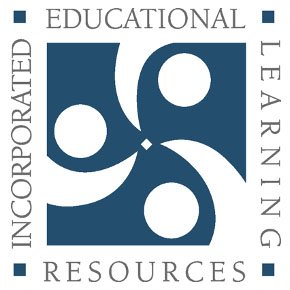
Our customers are public and private school teachers, administrators, school support staff, K-12 students and students’ parents in all U.S. states and the island of Puerto Rico. Most of the schools and districts we serve have student populations that perform at substandard levels on state and national-normed standardized achievement tests. Many of the students come from families that are in the lower income quartile, which studies show places them at high-risk of academic failure and dropping out of school before high school graduation.
Products & Services
Internet or On-site
Professional development for K-12 teachers, administrators and school support staff.
Distance (on-line) and face-to-face training for school personnel, students and students’ parents.
Coaching and mentoring services to teachers.
School safety improvement strategies.
Curriculum development and alignment.
Use test data to improve teaching and learning.
Classroom management
Classroom and school climate enhancement
Supervision of teachers
New teacher orientation and induction
Practitioner-oriented research
Instructional software for students K-12
Serving students and families of students at-risk of academic failure and dropping out.

Educational Learning Resources, Inc (ELRI) is a professional learning tools development company. The company has its roots in training teachers, administrators, school support staff and parents in all areas related to school improvement and student learning. ELRI trainers utilize strategies that result in a high level of transfer of the skills acquired in training to routine application.
The professional development programs offered by ELRI can be delivered in-person or via Zoom or Microsoft Teams. A hybrid model, which is a combination of the two, is also available.
Following are the titles of the professional development programs currently available by ELRI.
Professional Development Programs Developed by ELRI
-
Using technology to improve student learning
Using technology to track student learning
Organizing the classroom to start the school year
Establishing classroom rules and consequences
Managing student behavior
Coping with chronic and serious misconduct
Guidelines for instructional planning
Guidelines for instructional delivery
Constructing classroom tests
Using test data to make instructional decisions
Improving the social and emotional climate in the classroom
Photoperiodismo
-
Coaching and mentoring teachers
Improving the social and emotional climate in the school
Solving problems using action research methods
Managing school information
Improving parent-school relationships
Improving community-school relationships
Managing crisis events
Establishing and enforcing school rules and regulations
Conducting a school safety analysis
Evaluating teachers and support staff
Analyzing the key elements of school improvement
Strategies for collecting, analyzing and making decisions based on classroom observations
-
ELRI has experience in assisting school personnel in preparing school safety and crisis management plans that include the four phases of a plan recommended by the U.S. Department of Education (USDE) – mitigation/prevention, preparedness, response and recovery.
Crisis management teams consisting of the school directors, teachers, support staff, parents and emergency service providers are formed to prepare the plan documents. These teams receive training in the four-phase process by ELRI consultants and subsequent follow-up technical assistance to ensure that the plans meet USDE guidelines.
Following is a list of topics addressed during the preparation and implementation of the crisis management plans:
The definition of a crisis
Why schools need crisis plans
Forming the school crisis team – the operations of the team
Assignment of responsibilities within the team
The Safety audit – hazards assessment
Pre-crisis plans that are non-type specific
Crisis plans that are type specific
Practice drills and simulations
Communicating crisis plans to students, staff and parents
Responding to crisis events
Recovery – physical, emotional, facilities, etc.
Documenting crisis plans and incidents
Assessing and updating crisis plans based on experience
-
It all begins with an idea. Maybe you want to launch a business. Maybe you want to turn a hobby into something more. Or maybe you have a creative project to share with the world. Whatever it is, the way you tell your story online can make all the difference. Since 2002 ELRI has been presenting programs and prevention activities. Among them K-12 curriculum materials and resources, professional development programs for teachers, trainings to achieve safe schools, computerized tools, parenting programs on issues related to drugs, alcohol and violence prevention. Over 200 public and private schools have received prevention services for ELRI trainers and consultants.
The methodology used to teach the curriculum to students and parents includes research-based activities that contribute to obtaining learning outcomes by increasing the level of knowledge. These approaches help students and their parents to acquire knowledge, skills and attitudes necessary to create and maintain safe and drug-free schools and communities.
ELRI’s prevention model emphasizes the importance of intervention early to reduce risk factors associated with drug abuse, controlled substances and violence. Studies reveal that when students as early as first grade learn about the harmful consequences of violence and substance abuse at school, at home and in the community, they are better able to resist the temptations that lead them to these behaviors.
